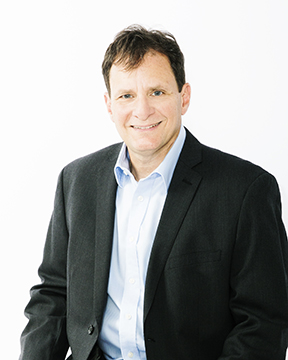*** Please note, each row and course# listed below is a separate, complete course. ***
Organosilanes: The Link Between Polymers and Surfaces
| Course# | Date | Time | Location |
|---|---|---|---|
| 156-1471 | 02/13/2026 - 02/13/2026 | 8:30 AM - 5:00 PM | Microsoft Teams |
| 156-1472 | 09/11/2026 - 09/11/2026 | 8:30 AM - 5:00 PM | Microsoft Teams |
Online Registration
CEU's: 0.8
Instructor: Anthony Parker, Ph.D.
Course Overview
Lunch Break: 11:30 am - 1:00 pm (EACH DAY for ONLINE ONLY course offerings)
This course is designed to provide an introduction to the applied chemistry of organosilane monomers and polymers with an emphasis on product development applications. Case studies will be presented to illustrate their use in applications pertaining to surface treatments, protective coatings, adhesion promoters, composites, wetting agents, and dispersion aids. Discussions will include chemistry & polymerization, mechanisms of adhesion, material properties, process effects, and analytical methodologies.
Audience: The subject matter is appropriate for technical professionals and managers with academic backgrounds in all fields of polymer science, chemistry, materials science, and engineering disciplines. A basic understanding of principles in organic, polymer, and physical chemistry will be beneficial, but not required for gaining product-development oriented insight from this course.
Online Course Requirements
We want you to have a great experience participating in our remote (online) courses, and for that, you’ll need the right equipment and internet connection.
Minimum needs are:
- A broadband internet connection that has at least a 2 Mbps upload and download speed.
- A computer (PC or Mac) that can support the latest web browser versions.
- At least 4 GB of RAM and adequate hard drive space.
- A microphone and a speaker.
- International Students: For virtual (online) courses, an additional fee will be assessed to cover the cost of shipping the professional binder (presentation slides), to your address. The cost of international shipping can be significant.
For more information, visit our Online Course Requirements webpage.
Instructor Biography:
 Anthony Parker, Ph.D. is a Principal Scientist and founder of A. A. Parker Consulting, LLC. Dr. Parker has 35 years of industrial experience in research, development, and management. He has been involved in multiple start-up businesses ranging from medical devices and musical instrument strings to packaging adhesives, pharmaceutical delivery systems, and cosmetics. His interests and expertise are in the areas of surface chemistry and adhesion, bio-based materials and adhesives, mechanical properties of polymers, structure-property-process relationships in polymers, thermal analytical methods, spectroscopic methods (NMR, FTIR), UV curable coatings, and musical strings/ instruments. Dr. Parker has authored or co-authored more than 70 publications, including 30+ journal articles and technical reviews as well as 40+ patents with several patents pending.
Anthony Parker, Ph.D. is a Principal Scientist and founder of A. A. Parker Consulting, LLC. Dr. Parker has 35 years of industrial experience in research, development, and management. He has been involved in multiple start-up businesses ranging from medical devices and musical instrument strings to packaging adhesives, pharmaceutical delivery systems, and cosmetics. His interests and expertise are in the areas of surface chemistry and adhesion, bio-based materials and adhesives, mechanical properties of polymers, structure-property-process relationships in polymers, thermal analytical methods, spectroscopic methods (NMR, FTIR), UV curable coatings, and musical strings/ instruments. Dr. Parker has authored or co-authored more than 70 publications, including 30+ journal articles and technical reviews as well as 40+ patents with several patents pending.
- Introduction - Course Description & Objectives
- Organosilane monomers, oligomers, and polymers
- General polymerization chemistry and mechanisms
- Mechanisms of adhesion and coupling
- Introductory examples of uses
- Adhesion promotion
- Composites
- Corrosion inhibition
- Surface treatments, dispersion, and wetting
- Extrusion processing – grafting
- Copolymerization with vinyl monomers
- Compatibilization
- Self-assembled monolayers with silanes & other molecules
- Other applications
- Review of Characterization Methods & Examples
- Solid surfaces – (e.g., FTIR, contact angle wetting, ESCA, NMR)
- Dispersions & process chemistry – (e.g., NMR, sedimentation, viscosity)
- Macro-Properties (e.g., adhesion, mechanical properties, rheology, TA techniques)
- Process considerations
- Solution chemistry, effects of hydrolysis & control thereof
- Effects of adhered surface chemistry
- Effects of formulated trace additives
- Self-limiting conditions
- Others
- Case studies
- Adhesion promotion of polymers to glass
- Corrosion inhibiting coatings
- Adhesion promotion of polymers to metals
- Composite materials
- Surface treatments for pigments, fillers, particulates
- Questions and Discussion – Analysis of specific problems from course participants
